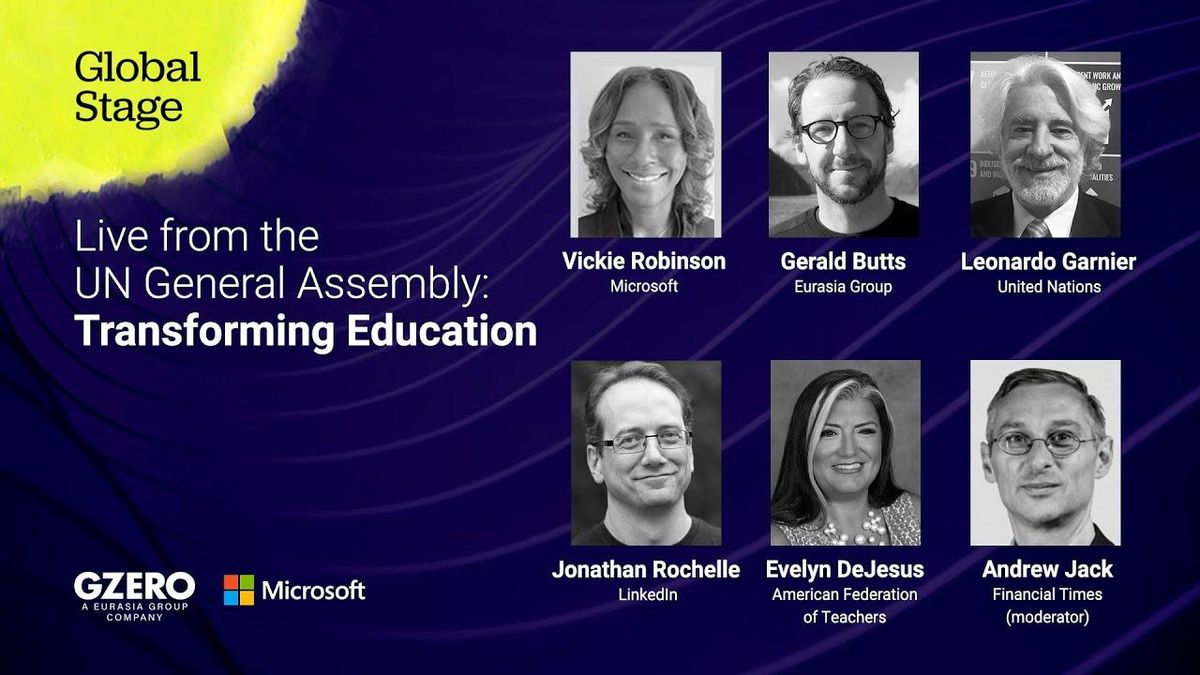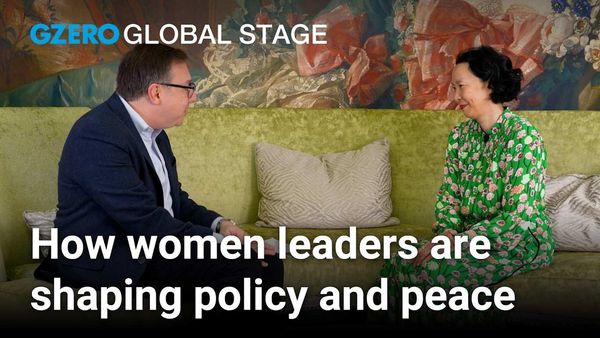How to get students back on track after the Great Education Disruption
As the 77th UN General Assembly gets underway, much of the attention will go toward how to breathe new life into the Sustainable Development Goals. Why? Because the pandemic wiped out years of progress on meeting the 17 SDGs, especially No. 4: ensuring inclusive and equitable quality education and promoting lifelong learning opportunities for all.
COVID disrupted the lives of some 1.6 billion students around the world. Almost 150 million missed about half of in-person classes in 2020, and 24 million will never return to school.
So, how can we get education back on track before it's too late? Several experts weighed in during the Global Stage livestream conversation "Transforming Education" hosted by GZERO Media in partnership with Microsoft.
The data on the pandemic's crippling effect on education are not enough to get a real sense of the "picture of this time," said Leonardo Garnier, special adviser for the UN's Transforming Education Summit. Still, now we have an opportunity to invest in education like we've never done before — including in low-income countries where the government and businesses actually benefit from a cheap, uneducated labor force. Investing in education, Garnier added, is not only a moral imperative but a wise economic decision because it comes with big long-term payoffs like more educated women entering the workforce.
American Federation of Teachers Executive VP Evelyn DeJesus, for her part, explained how during the pandemic kids were walloped by multiple traumas, arguably the least of which was having to learn on Zoom. She believes it would have been a miracle if test scores hadn't dropped. While recognizing the failures of remote learning, DeJesus still thinks we need to spend big — no more belt-tightening — on broadband access for all, and resents how education has become a political football in America.
COVID's wrecking ball to education exacerbated divisions not only between but also within countries, which in the future will disrupt politics when people get angry from losing out on opportunities, said Eurasia Group Vice Chairman Gerald Butts. How can we stop this? With more global cooperation on education, which should be a "continuum" for everyone, everywhere.
Vickie Robinson, general manager of Microsoft's Airband Initiative to expand global broadband access, said that despite the disruptions caused by the abrupt switch to remote learning during the pandemic, we still need to invest in digital infrastructure because it might just happen again and we can't afford for our kids to lose any more school time. Who should do this? Robinson believes the responsibility for digital inclusion should be shared by governments and the private sector.
Finally, one silver lining from COVID on higher education is that for many workers it shifted the focus from going to the right school to having the right skills, noted Jonathan Rochelle, VP of Product Management, Learning Content & Instructor Experience at Linkedin. And it'll continue, since acquiring skills in lifelong learning must be "a moving target."
- Should internet be free for everyone? A Global Stage debate ... ›
- Is the world coming apart? Drama at Davos - GZERO Media ›
- Economic historian Adam Tooze on the post-pandemic global ... ›
- Stanford's president on the “new normal” for higher education after ... ›
- How education has improved women's lives around the world ... ›
- COVID's impact on education and its long-term geopolitical consequences: Gerald Butts - GZERO Media ›
- Who can solve the world's "emergency of global proportions"? - GZERO Media ›
- Overcoming inefficiency with education - GZERO Media ›


















